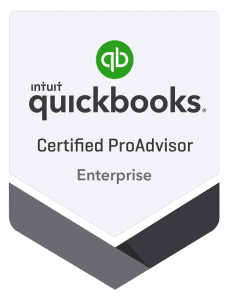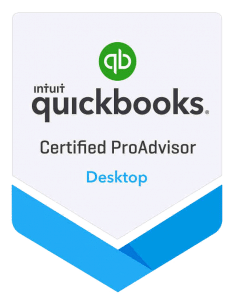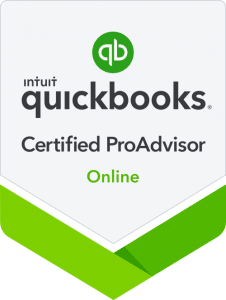On average, a single payroll error can cost your company a staggering $291. Such mistakes, often overlooked, spotlight a critical question every business leader must address: who handles payroll in a company?
This blog reviews several options for who can handle payroll for your company. With these guidelines, you can confidently decide who’s best equipped to reduce the risk of costly errors.
Keep reading to learn more.
Accounting Department
Putting payroll under the accounting department structure is one popular option. Payroll involves a ton of numbers, math, and money movements – perfect for accountants. The accounting team can ensure that payroll costs are properly logged, taxes filed, and payments made on time.
But there are some drawbacks too. Payroll can be time-consuming and boring. This can take away resources for other accounting work like budgeting, forecasting, auditing, and reporting.
Moreover, payroll requires specialized know-how that some accountants lack. This includes labor laws, benefits, employee types, and payroll software. Last but not least, payroll can expose the accounting department to mistakes, fraud, or fines if done wrong.
There’s no doubt that accountants can handle payroll well. However, for optimal results, the team needs enough time, training, and help from HR. This ensures excellent service for a company’s most vital assets – its employees.
HR Department
Making payroll one of the HR roles and responsibilities is another option worth exploring. This makes sense because payroll is closely tied to managing employees, which is the main function of HR.
The HR department can ensure that payroll policies and procedures are aligned with the company’s culture, values, and goals. They can also handle any queries, complaints, and disputes regarding paychecks, deductions, and benefits. Moreover, the department can use payroll stats to study employee experience.
The main challenge of taking this approach is that payroll requires a ton of attention to detail and accuracy. This may not be the skill of all professionals in your HR department.
Moreover, payroll can be a sensitive matter that requires a high level of trust between HR and staff. Third, payroll can cause conflicts of interest or ethical issues for HR. Examples include when dealing with pay raises, bonuses, incentives, or discipline cases.
HR personnel can handle payroll well in many companies, but proper training is essential. And care should be taken to avoid clashing with HR’s other core responsibilities. With the right precautions, HR and payroll can work hand-in-hand to support employees.
Outsourcing to a Payroll Provider
Outsourcing to a payroll provider can be a convenient and affordable solution. This is especially true for small businesses that don’t have the resources or expertise to handle payroll in-house.
The payroll provider can handle all aspects of payroll for you. This includes data entry, calculations, taxes, payments, reports, compliance, support, and more. They also offer access to advanced tech, specifically payroll software for small business.
Like the other options above, there are certain risks to consider. The most concerning is that you have to rely on the quality and reliability of the service provider and their staff. If they make mistakes or miss deadlines, you may face lawsuits, unhappy employees, and more.
There’s also the fact that you have to share sensitive and confidential information with a third party. This may expose you to security and privacy threats.
What’s more, you give up some control and flexibility over payroll operations. This limits your ability to customize policies or procedures when needed.
Best Practices for Payroll Management
Regardless of who handles payroll functions, following best practices is key to smooth and efficient operations. Certain guidelines around auditing, training, and more can maximize accuracy. It can also reduce costly risks, improve employee satisfaction, and save time for overloaded teams.
Below are some payroll best practices to consider:
Set a Clear Payroll Schedule
No matter who runs payroll, make a schedule and stick to it. Set firm due dates for gathering data, prepping checks, double-checking, approving, and handing out pay. Tell everyone the schedule so they know what to expect.
Having set payroll days every pay period helps things run super smoothly and efficiently. You’ll never have to worry about scrambling or confusion.
For example, a bi-weekly payroll schedule where data collection ends every second Tuesday, checks are prepared by Thursday, double-checked and approved on Friday, and finally distributed to employees the following Monday.
Maintain Open Communication With Employees
Ensure that the staff know their rights and responsibilities when it comes to payroll. Give them easy access to important payroll documents. These include pay stubs and tax forms.
Encourage them to double-check their paychecks for accuracy and speak up about any problems immediately. Respond to any and all inquiries quickly and honestly. This promotes trust and understanding around payroll issues.
Invest in Training and Education
One of the biggest mistakes businesses make is assuming their team knows how to manage payroll properly. In-depth training on your systems and software can go a long way toward improving results.
Update your team on the latest regulations and best practices. Consider getting them a payroll certification, and refresh their skills regularly. Keeping your employees well-informed reduces the risk of mistakes and keeps you compliant.
Perform Regular Payroll Audits
Consistency and vigilance are key for payroll accuracy. Rigorously review reports and records every pay period.
Verify calculations, deductions, earnings, taxes, and all data. Correct mistakes right away and notify impacted employees.
Stay Compliant With Laws and Regulations
Payroll is governed by many legal requirements that change frequently. Work closely with your HR and legal teams to stay current.
Watch for updates from the IRS, Department of Labor, and other agencies. Adhere to all federal, state, and local laws that apply to your payroll.
Who Handles Payroll in a Company? Cloud Bookkeeping Is Here to Help
Now that you know the different options for who handles payroll in a company, it’s time to contact Cloud Bookkeeping. As a team of certified QuickBooks ProAdvisors, we offer customized bookkeeping and payroll solutions. We work with small to large businesses, self-employed, and anyone needing bookkeeping or payroll services.
Ready to elevate your bookkeeping and processes? We can’t wait to work with you – reach out today!






